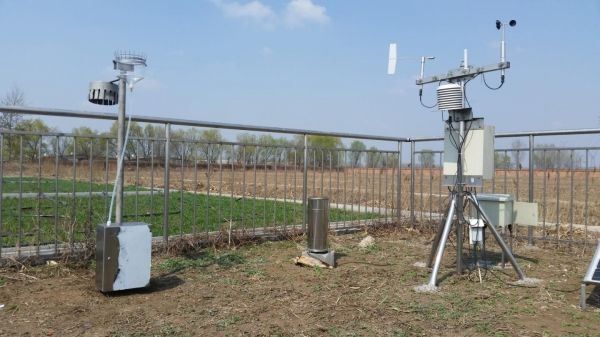Removal of pollutants from the air, or atmospheric deposition, is a natural cleaning mechanism. However, the removed toxic matters don’t just disappear on the Earth. China's Soil Pollution Survey released in 2014 shows that 19.4% of the Chinese farmland soil was polluted and 82% of pollutant was toxic heavy metals such as cadmium, which can cause chronic health problems.
Atmospheric deposition is an important source of these heavy metals in the soil but it tends to be neglected. Unlike sources from irrigation water, sewage sludge, fertilizers and livestock manures, atmospheric deposition can't easily be perceived. And the paucity of measurements also makes it difficult to track what happens to heavy metals when they fall from the air to the soil.
Earlier in 2013, a series of control measures was launched to improve air quality in China. As a consequence, the concentrations of fine particles and sulfate aerosols were reduced significantly during 2013 to 2017.
Dr. PAN Yuepeng with the Institute of Atmospheric Physics at the Chinese Academy of Sciences was a researcher dedicated to tracking atmospheric processing and deposition of air pollutants and their impacts on ecosystem. He was greatly encouraged by the positive effect of the Clean Air Act and meanwhile he wondered, "Will the Clean Air Act also affect the atmospheric deposition? If yes, what implication can we get?"
Read more at Institute of Atmospheric Physics, Chinese Academy of Sciences
Image: Field sampling for atmospheric deposition (Credit: Yuepeng Pan)


